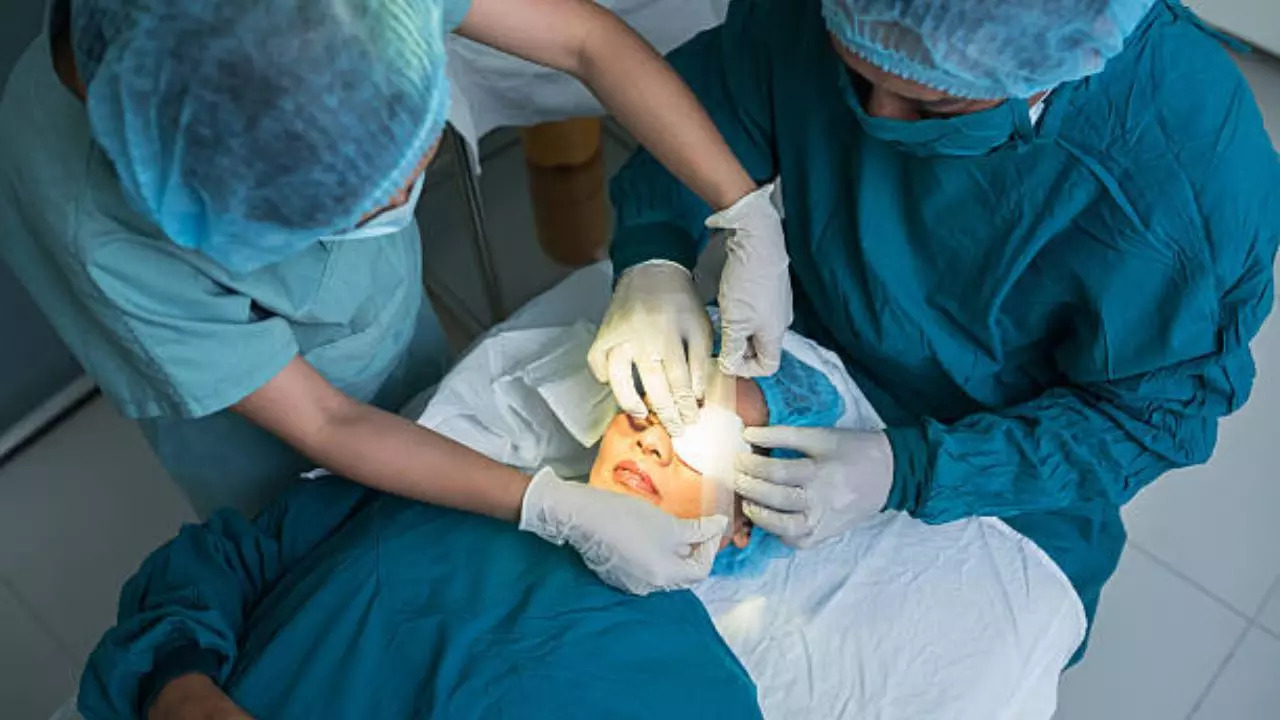How to choose the right surgeon for your cataract surgery
Choosing the right surgeon for cataract surgery involves careful consideration of many factors, including credentials, experience, technique, and patient reviews. By taking the time to research and consult with potential surgeons, you can make an informed decision that increases the likelihood of a successful surgical outcome. Read on to learn what to consider before you get started.

How to choose the right surgeon for your cataract surgery (Image credit: iStock)
Choose the right surgeon for you Cataract Surgery This is a decision that can affect not only the outcome of the surgery, but also the speed of your recovery. cataracts The surgery, one of the most commonly performed surgeries worldwide, involves removing the cloudy natural lens of the eye, which is then replaced with a synthetic lens called an intraocular lens (IOL). This surgery is necessary to restore vision impaired by cataracts, which are primarily age-related but can also be caused by other risk factors such as diabetes, Smokingand prolonged exposure to UV rays.
Advances in surgical techniques and the introduction of cutting-edge technology have revolutionised cataract surgery, making it safer and capable of achieving more accurate results. We got in touch with Dr Ravi Daruka, Senior Consultant, Sharp Sight Eye Hospital, who shared things to consider before choosing a surgeon for your cataract operation.
Check Credentials and Experience
Dr. Ravi says the first step in choosing the right surgeon is to check their qualifications. Being a board-certified ophthalmologist is a must. Such certification shows that the surgeon has met rigorous education and training requirements, and is recognized by their peers for their expertise in eye surgery. Beyond board certification, consider the surgeon’s experience specifically with cataract surgery. Surgeons who perform a higher volume of cataract surgery typically have more sophisticated skills and are up to date on the latest techniques.
Evaluate technical proficiency
Dr. Ravi explains that it is important to inquire about the technology used by the surgeon. For example, the use of femtosecond lasers in cataract surgery can allow for more precise incisions and lead to better visual outcomes and potentially faster recovery. Surgeons who invest in such advanced technologies are often those who are committed to providing the best care and outcomes to their patients.
Consider the surgeon’s reputation
The surgeon’s reputation in the community can provide information about their expertise and trustworthiness. Reviews from past patients can be a valuable resource for understanding the surgeon’s ability to deliver not only a successful surgical outcome but also a good patient experience. Dr. Ravi explains that high patient satisfaction and positive testimonials often reflect the surgeon’s competence and dedication to patient care.
Discuss IOL options
Dr Ravi explains that different types of IOLs offer different benefits. For example, mono-focal IOLs are designed for distance vision, while multifocal IOLs can help you see at a range of distances, potentially eliminating the need for glasses. A good surgeon should discuss these options with you, recommending the most appropriate type of IOL, taking into account your lifestyle and vision needs.
Facility and surgical environment
Dr. Ravi says that the quality of the facility where the surgery will be performed is also an important consideration. It is advisable to choose a hospital or surgical center that is equipped with the latest medical technology and has experienced professional staff. The facility should follow strict safety standards and have a track record of successful surgeries.
Cost and Insurance
While cost should not be the only deciding factor, it is important to consider the financial aspects of surgery. Patients should inquire about the total cost of the procedure, which may include pre-operative assessments, the surgery itself, and post-operative care. It is also important to confirm whether the surgeon accepts insurance and what expenses may be covered, she added.
Post-operative care and follow-up
Post-operative care is a crucial component of the cataract surgery process. Dr. Ravi explained that a good surgeon will provide detailed post-operative instructions and schedule follow-up visits to monitor the patient’s recovery. These visits are important to assess the success of the surgery and address any complications that may arise.
Get the latest news on Times Now as well as breaking news and top headlines from across health and the world.
diabetes


